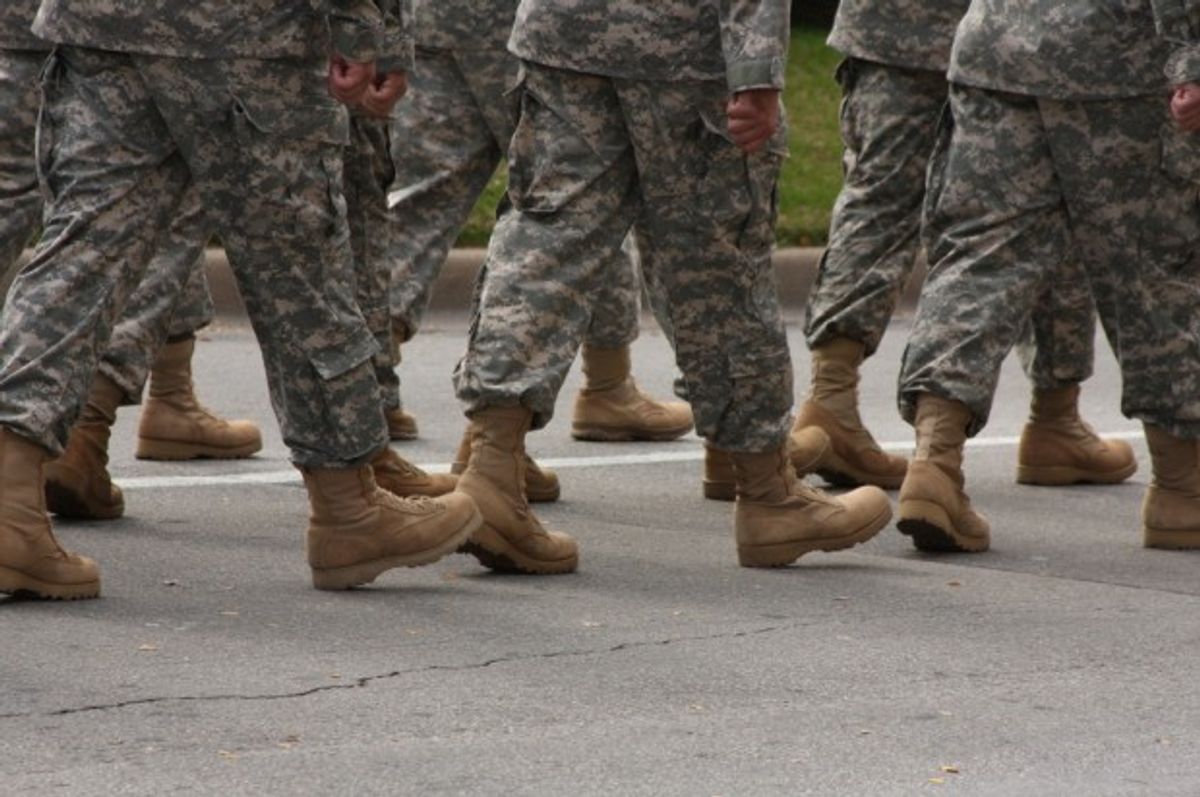Here’s Sen. Jeanne Shaheen, Democrat from New Hampshire, on the Access to Contraception for Women Servicemembers and Dependents Act, a measure that would overhaul the Department of Defense’s policy on contraceptive coverage and family planning counseling:
There are more than 350,000 women currently serving on active duty today, and 97% are of reproductive age. The rate of unintended pregnancy for servicewomen is 50% higher than the civilian population. That tells me that these servicewomen aren’t getting the best comprehensive counseling and education on contraception. As the number of women in our armed forces increases, it’s important that we recognize the unique challenges they face and provide the support they need as they defend our nation.
2. Sexual assault remains rampant, and unpunished, in the military. Pentagon numbers also leave out crucial incidents of assault for civilian women assaulted by members of the military, including spouses.
According to Pentagon estimates, there were approximately 26,000 cases of sexual assault in the military in 2012. But as a report released earlier this month by Sen. Kirsten Gillibrand reveals, that number only tells part of the story.
From the report:
32 percent of Reports Are by Civilian Women, Uncounted in the Department of Defense’s Sexual Assault Prevalence Surveys. An analysis of the case files revealed that there were 33 alleged assaults by servicemembers on civilian women out of 107 during 2013.
21 percent of Reports Are by Civilian Military Spouses, Uncounted in the Department of Defense’s Sexual Assault Prevalence Surveys. An analysis of the case files revealed that there were 22 alleged assaults by servicemembers on their civilian spouses out of 107 during 2013.
3. Servicemembers who report a sexual assault are 12 times more likely to experience some kind of retaliation than they are to see an attacker convicted.
And a 2012 study found that 47 percent of female servicemembers who did not report a sexual assault said that one of the reasons why was fear of retaliation. A new Human Rights Watch report on the harassment and threats victims face after reporting documented what some of that abuse looks like.
From the report:
A Marine reported that in 2014 after the case against her perpetrators was closed with them only being punished for alcohol violations, she began getting threatening anonymous text messages and her car was vandalized. On Facebook, her picture was posted on a webpage frequented by Marines with her name, calling her a “wildebeest,” and saying she needed to be silenced “before she lied about another rape.” She was called a “cum dumpster” and someone posted “find her, tag her, haze her, make her life a living hell.” She stopped going to the chow hall (dining facilities) out of fear.
4. Trans women in the military can’t serve openly and can’t access essential healthcare.
This is blatant discrimination, plain and simple. From a report released last year and headed by former Surgeon General Dr. Joycelyn Elders:
[T]here is no compelling medical rationale for banning transgender military service, and that eliminating the ban would advance a number of military interests, including enabling commanders to better care for their service members. [...] Regulations that prohibit transgender service members from obtaining medically necessary gender-confirming surgery are harmful to the service members and inconsistent with policy concerning other reconstructive surgeries that service members are allowed to have. The ban on transgender military service compromises continuity of care between the Military Health Service and Veterans Health Administration.
5. Beyond the trauma of war, women veterans experience PTSD from sexual trauma.
But unlike treatment for combat trauma, the “paper trail” to document sexual trauma experienced while on active duty is often a higher burden for victims. According to recent data, 32 percent of military sexual assault-related PTSD claims are approved by the VA compared to 54 percent of other PTSD claims
“It’s just a broken policy. So veterans experience betrayal from the sexual assault, from the way they are treated by their units after the assault, and then by the VA when they file claims,” Anu Bhagwati, executive director of Service Women’s Action Network (SWAN) and a former captain in the Marine Corps told the Washington Post in 2014. “The VA became the last place, after a long line of places, where any hope they had left of getting help just dies.”

Shares